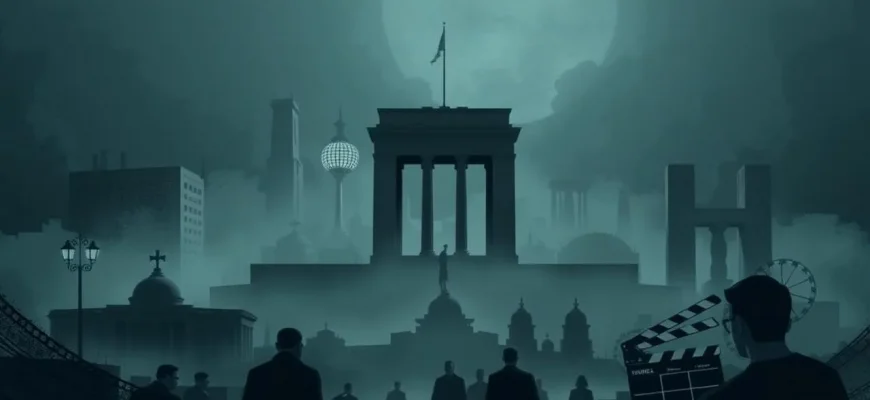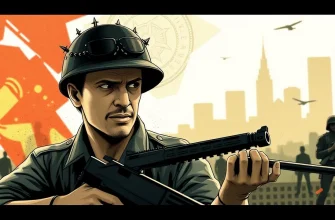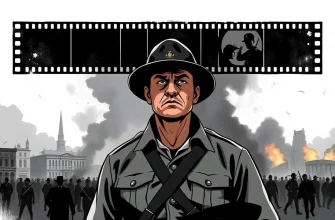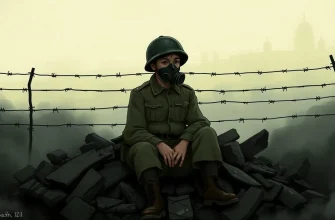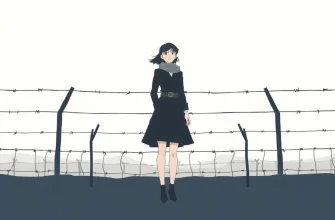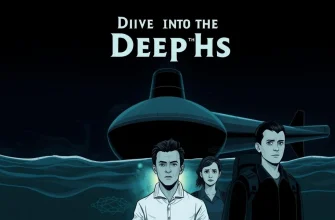Delving into the chilling world of fascism, these films offer a thrilling exploration of power, control, and resistance. From historical dramas to speculative fiction, each movie in this list provides a unique perspective on the fascist regime, making it a must-watch for those interested in political intrigue, moral dilemmas, and the human spirit's resilience against oppression.

The Young Lions (1958)
Description: This war drama follows the lives of three soldiers, one of whom is a German officer, during World War II. It provides a nuanced look at the fascist mindset through the eyes of a conflicted Nazi.
Fact: Marlon Brando plays the German officer, delivering one of his most complex performances.
 Watch Now
Watch Now 
The Night Porter (1974)
Description: A former SS officer and a concentration camp survivor meet again years after the war, sparking a complex and disturbing relationship. The film examines the psychological aftermath of fascism and the blurred lines between victim and perpetrator.
Fact: The film was controversial upon release for its explicit content and the portrayal of a sadomasochistic relationship.
 Watch Now
Watch Now 
The Odessa File (1974)
Description: A journalist uncovers a secret organization of former SS officers in post-war Germany. This film delves into the persistence of fascist ideology and the hunt for justice.
Fact: The film was based on Frederick Forsyth's novel, and it's noted for its realistic portrayal of post-war Germany.
 Watch Now
Watch Now 
The Boys from Brazil (1978)
Description: A chilling thriller where a Nazi hunter discovers a plot to clone Adolf Hitler. The film explores the lingering threat of fascism and the moral implications of genetic engineering.
Fact: The film was based on Ira Levin's novel of the same name and features a memorable performance by Gregory Peck as Josef Mengele.
 Watch Now
Watch Now 
The Lives of Others (2006)
Description: While not directly about fascists, this film set in East Germany under the Stasi regime explores themes of surveillance, control, and resistance, which resonate with fascist tactics. It's a gripping tale of a secret police officer who becomes emotionally involved with the lives he's supposed to monitor.
Fact: The film won the Academy Award for Best Foreign Language Film in
 Watch Now
Watch Now 
The Book Thief (2013)
Description: Set during World War II, this film follows a young girl in Nazi Germany who finds solace in stealing books and sharing them with her neighbors, offering a humanistic perspective on life under fascist rule.
Fact: The film is based on Markus Zusak's best-selling novel, narrated by Death, which adds a unique narrative voice to the story.
 Watch Now
Watch Now 
The Reader (2008)
Description: While not directly about fascism, the film deals with the aftermath of the Holocaust, exploring themes of guilt, responsibility, and the legacy of fascist regimes through a personal story.
Fact: Kate Winslet won an Academy Award for Best Actress for her role in this film.
 Watch Now
Watch Now 
The Conformist (1970)
Description: This film follows Marcello Clerici, an Italian bureaucrat, who is sent on a mission to assassinate his former professor, now an anti-fascist dissident in Paris. The movie delves into themes of conformity, identity, and the moral ambiguity of fascism.
Fact: The film was inspired by the novel by Alberto Moravia and features stunning cinematography by Vittorio Storaro.
 30 Days Free
30 Days Free 
The Damned (1969)
Description: Set in 1930s Germany, this film explores the rise of the Nazi party through the lens of the Essenbeck family, whose steel empire becomes entangled with the fascist regime. It's a dark, operatic portrayal of moral decay and political power.
Fact: Luchino Visconti, the director, was known for his lavish productions, and this film is no exception, with its grand sets and intense performances.
 30 Days Free
30 Days Free 
The Fall of Berlin (1950)
Description: A Soviet propaganda film, it portrays the final days of the Third Reich from the perspective of the Red Army. While not a thriller in the conventional sense, its depiction of the fascist regime's collapse is intense and dramatic.
Fact: The film was directed by Mikhail Chiaureli, who was known for his epic films glorifying Soviet history.
 30 Days Free
30 Days Free 
